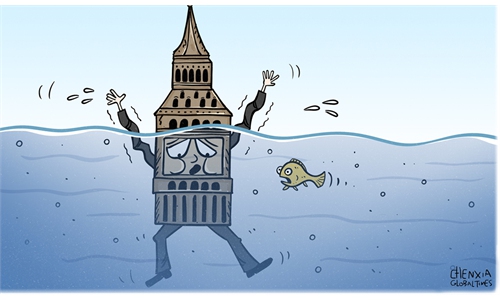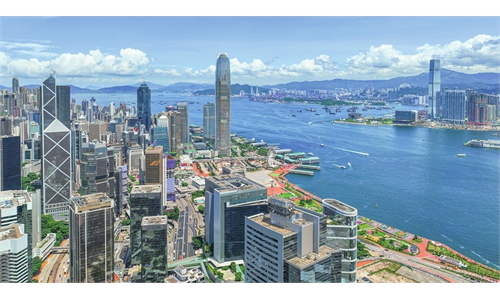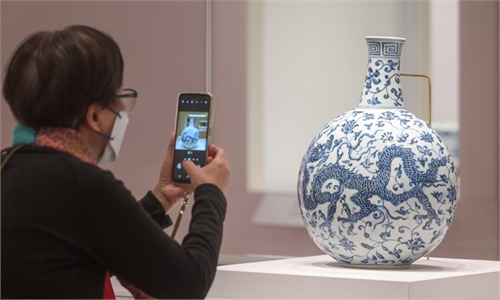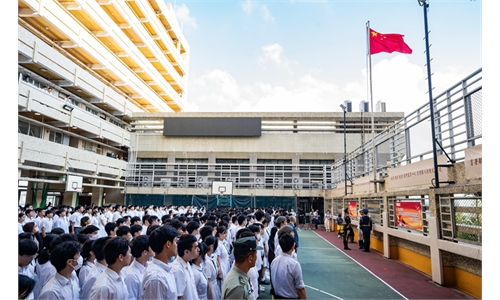ARTS / CULTURE & LEISURE
Political advisors from HK propose transforming city into cultural, art hub
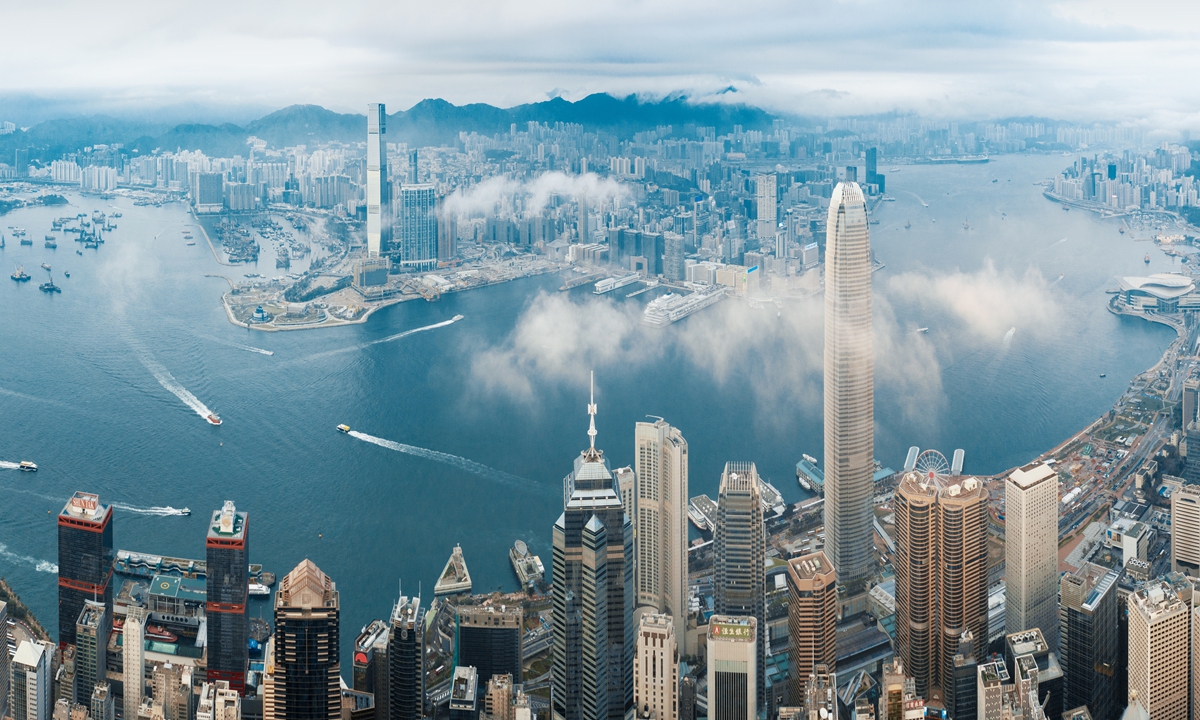
The view of Hong Kong Photo: VCG
While the 14th Five-Year Plan has made clear China's support for Hong Kong region in enhancing its status as a center for various fields such as finance and trade, some political advisors from the city to the ongoing two sessions have proposed transforming it into a hub for the arts and cultural exchanges between China and the rest of the world.Lam Lung-on, a member of the National Committee of the Chinese People's Political Consultative Conference (CPPCC) from the Hong Kong Special Administration Region, told the Global Times on Sunday that, as a pivotal region connecting China with the international community, Hong Kong is an international hub that bridges Eastern and Western civilizations. In spreading Chinese culture, telling China's story, and helping the world better understand China, the Hong Kong Special Administrative Region government should also play a proactive and important role.
Peter KN Lam, a Hong Kong member of the Standing Committee of the 14th CPPCC National Committee and chairman of the Hong Kong Trade Development Council (HKTDC), also told media that to promote the integration of the cultural industries of the Guangdong-Hong Kong-Macao Greater Bay Area (GBA), the central government should support and encourage the acceleration of establishing Hong Kong as a center for cultural and art exchanges between China and the world.
The political advisor recommended that cooperation in the cultural industries of the GBA be deepened to transform Hong Kong into a "Lingnan cultural and creative industry leader" while leveraging Hong Kong's international platform to actively share Lingnan culture, or Cantonese culture, and the GBA story with the world.
Located in South China, Lingnan encompasses the territories of today's Guangdong, Guangxi and Hainan provinces. Lingnan culture attaches great importance to commerce and maintains a relatively open attitude toward foreign cultures. Guangdong, Hong Kong and Macao all share the culture of Lingnan.
The 14th Five-Year Plan has made clear the country's support for Hong Kong in enhancing its status as an international financial, transportation and trade center. Furthermore, among the various areas of importance in the region, the Plan also supports developing Hong Kong into a hub for the arts and cultural exchanges between China and the rest of the world.
"The Plan includes Hong Kong's cultural development for the first time, supporting Hong Kong's transformation into a center for cultural and art exchanges between China and the world. This not only reflects the nation's recognition of Hong Kong's unique advantage in integrating Chinese and Western culture but also brings tremendous opportunities for the development of Hong Kong's cultural industry," Peter KN Lam added.
Another political advisor, Warren Mok, China's top tenor, shared the same view. "Hong Kong's positioning as a center for cultural exchange between China and the world is crucial. It's also important to integrate Hong Kong's youth into the Greater Bay Area and the Chinese mainland, fostering more exchanges. Hong Kong has a unique status under the policy of 'one country, two systems.' It holds a special position and advantages as a cultural exchange hub, allowing it to better tell China's stories to the world," Mok told the Global Times on Monday.
Music plays a central role, facilitating numerous exchanges. For instance, Chinese mainland groups perform in Hong Kong, while Hong Kong groups perform in the mainland, and together they showcase abroad, holding significant symbolic value. Hong Kong's unique system allows for easier approval processes in terms of foreign groups coming to China for performances, enriching the music scene in China in this sense, he added.
Specifically, Lam Lung-on proposed to transform Hong Kong into an international art trading center.
Lam Lung-on pointed out that transforming Hong Kong into such a center would attract more domestic and international investors and collectors. This would not only facilitate the display and circulation of artworks in Hong Kong but also bring more opportunities and resources to the Chinese art market, promoting the inheritance and development of Chinese culture. By advancing the protection and inheritance of cultural heritage, Hong Kong can also make significant contributions to the prosperity and development of Chinese culture.
"Chinese civilization has a long history and rich cultural heritage. Given the emergence of a large number of art trading institutions in the Chinese mainland in recent years, the financialization of art has gradually become an irreversible trend. As an international financial center and cultural exchange hub, Hong Kong attracts artists, collectors, and cultural enthusiasts from around the world," said the CPPCC member.
Lam Lung-on mentioned that Hong Kong has unique advantages in becoming an international art trading center.
"Hong Kong is home to a vast number of cultural relics and has a long history in the art trading industry. As a free port, Hong Kong has relatively few restrictions on the auction of cultural relics, allowing a wider range of artworks to be auctioned in an international trading environment," he said.
At the same time, as an international financial center, Hong Kong has woven a resilient and close commercial network and has developed a relatively complete legal system that can protect art transactions, he noted.
"Hong Kong should seize historical opportunities and utilize its rich resources in art, its globally recognized financial services capabilities and legal advantages. By developing an international art trading center, Hong Kong can also lead to new aspects for economic growth," he summarized.

